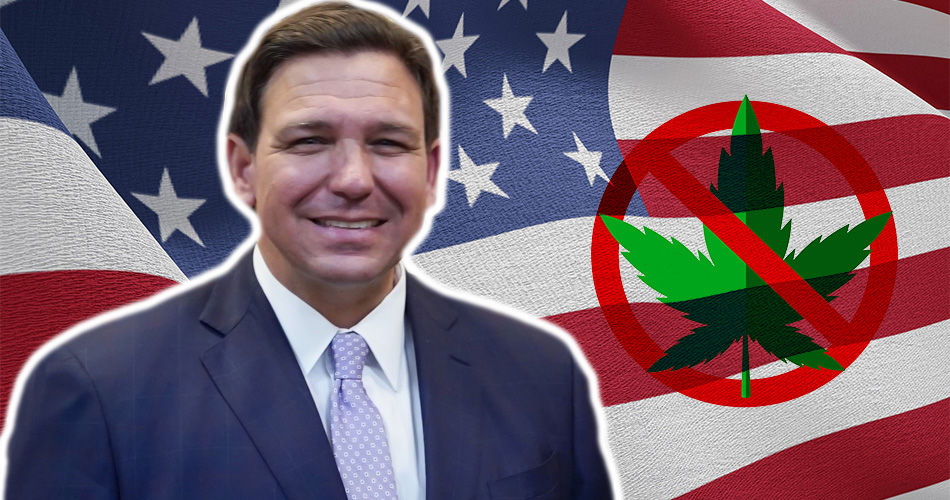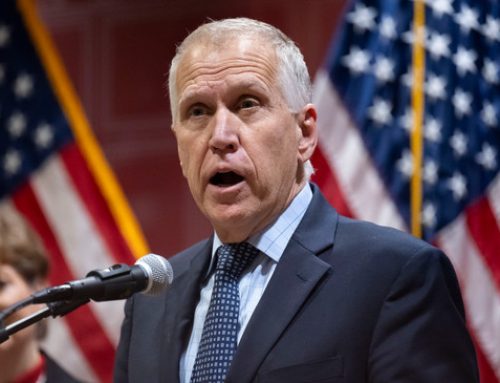Ron DeSantis’ Shifting Stance on Cannabis Legalization Raises Questions of Political Motivations
MIAMI- In a surprising about-face, Florida Governor Ron DeSantis has drawn criticism for his recent shift in stance on cannabis legalization, specifically regarding medical use. Once a proponent of cannabis legalization for medicinal purposes, DeSantis now finds himself in opposition to the overwhelming majority of Americans and Floridians who support the expansion of cannabis access for all adults. This sudden reversal has raised questions about the governor’s motivations, particularly in light of his adoption of the traditional Republican position opposing cannabis legalization.
In recent years, public opinion has shifted significantly in favor of cannabis legalization, both for medical and recreational use. With numerous states across the nation enacting their own laws to accommodate this changing sentiment, it comes as no surprise that a majority of Americans now support the broader legalization of cannabis. Moreover, a substantial number of Floridians have shown strong support for the expansion of medical cannabis access in their state.
Governor DeSantis was once seen as an ally in the cannabis reform movement. In 2019, he signed a bill into law that lifted a ban on smoking medical cannabis, a move widely applauded by patients and advocates. This action suggested a willingness to listen to the needs and desires of his constituents, aligning himself with the growing call for cannabis reform.
However, DeSantis’ recent opposition to cannabis legalization, particularly in the medical realm, has raised eyebrows and ignited accusations of political opportunism. Critics argue that the governor’s newfound stance is out of touch with the wishes of the people and driven more by political calculations than genuine concern for the well-being of Floridians.
Notably, DeSantis’ shift coincides with his rising political aspirations. As a potential candidate for higher office, including a potential presidential bid, the governor may be seeking to align himself more closely with the traditional Republican position on cannabis. This position, which opposes the legalization of cannabis, has deep roots in the party, tracing back to President Richard Nixon’s signing of the Controlled Substances Act in 1970.
The traditional Republican stance on cannabis legalization has long been criticized as out of step with the evolving public sentiment. As public opinion shifts, many Republicans have begun to embrace cannabis reform, recognizing the potential economic benefits, social justice implications, and the will of the people. Governor DeSantis’ recent pivot away from his previous support for cannabis reform stands in stark contrast to this trend, leading to accusations of political expediency.
The governor’s opposition to cannabis legalization raises concerns about the potential consequences for Floridians. The medical use of cannabis has been shown to provide relief for individuals suffering from various debilitating conditions, such as chronic pain, epilepsy, and multiple sclerosis. Limiting access to this potentially life-changing medicine could leave patients without viable treatment options and hinder the progress of medical cannabis research.
As the cannabis legalization movement gains momentum across the country, the spotlight is now on Governor DeSantis and his shifting stance. With a majority of Americans and Floridians supporting cannabis reform, the governor’s opposition puts him at odds with the will of the people he serves. Critics argue that this shift represents a missed opportunity to support a burgeoning industry, generate tax revenue, and address the long-standing injustices of the war on drugs.
As the debate over cannabis legalization continues, it remains to be seen how Governor DeSantis’ opposition will impact his political career and the broader cannabis reform movement. The coming months and years will reveal whether his shift in position was a calculated political maneuver or a genuine reflection of his evolving beliefs. In the meantime, advocates and supporters of cannabis reform will continue to push for policies that reflect the will of the people and prioritize the well-being
of patients in need.



































